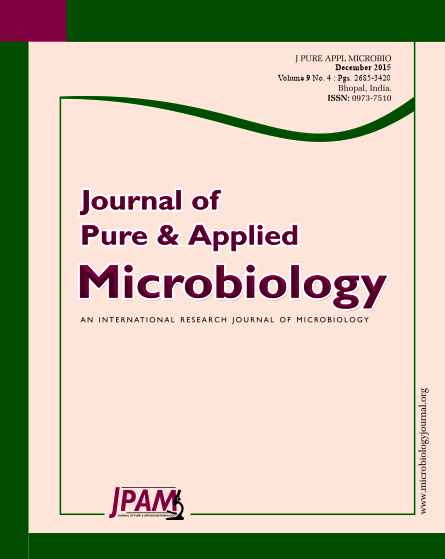Glyphosate is an organophosphorus insecticide widely used as a herbicide. The intensive use of herbicides in agricultural soils is a matter of environmental concern. Glyphosate is toxic to environment, exploration of various glyphosate degrading bacteria to clean-up the pesticides is of immense importance. Four bacterial isolates were successfully isolated from glyphosate contaminated soil and were named GP-1, GP-2, GP3 and GP-4. The isolates were capable of utilizing glyphosate as the sole source of carbon and were able to grow at 1000 mg/l concentrations of glyphosate. Effect of environmental conditions like temperature, pH and NaCl concentration was determined for all bacterial isolates. Most of bacterial isolates showed susceptibility for different antibiotics in antibiotic sensitivity test. Growth kinetics experiments showed that the bacterial isolates were able to grow in medium containing the glyphosate as the carbon source. Out of four bacterial isolates GP-4 was identified based on16S rRNA sequence analysis.
Glyphosate, Organophosphorus, Growth kinetics, 16SrRNA
© The Author(s) 2015. Open Access. This article is distributed under the terms of the Creative Commons Attribution 4.0 International License which permits unrestricted use, sharing, distribution, and reproduction in any medium, provided you give appropriate credit to the original author(s) and the source, provide a link to the Creative Commons license, and indicate if changes were made.


